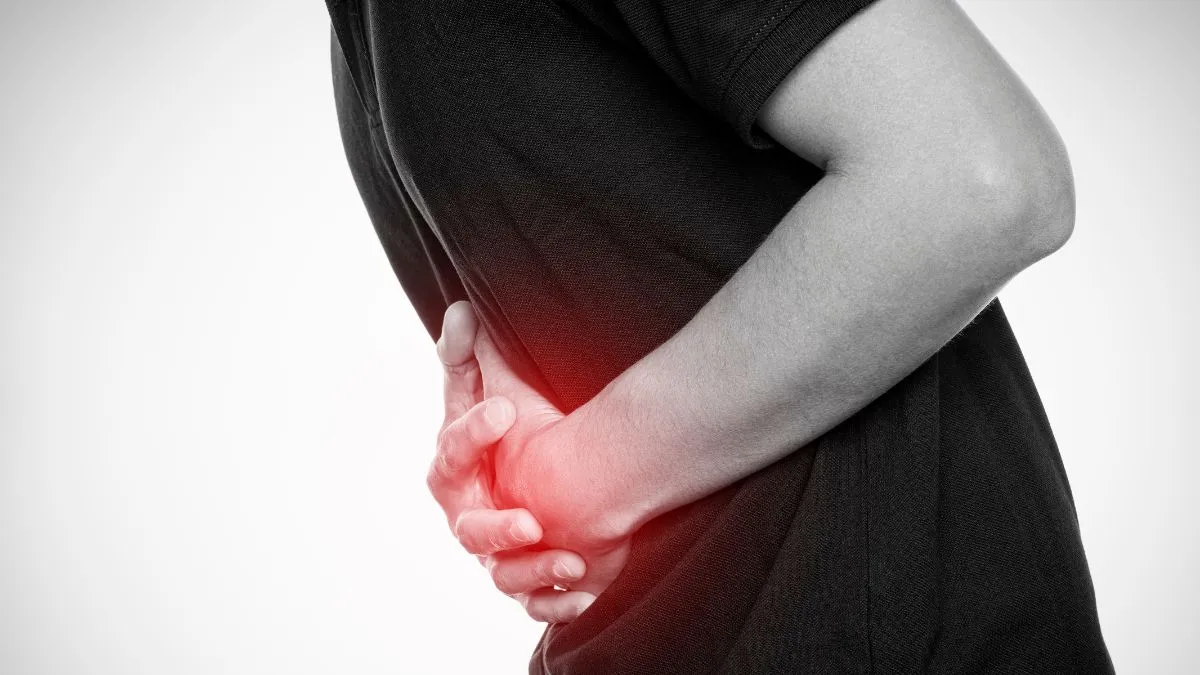- By Iram Hussain
- Thu, 17 Apr 2025 06:34 PM (IST)
- Source:JND
Bloating and indigestion are common complaints, often shrugged off as the price we pay for eating in a rush or eating the wrong foods. Bloating is a common digestive issue that can be caused by a sedentary lifestyle or an unhealthy stomach. But it may signal something more than it seems. While occasional bloating is generally harmless, frequent or chronic bloating can sometimes indicate a deeper, more serious health issue that shouldn’t be ignored.
In a conversation with Jagran English, Dr. Nitin Manglik Consultant - Medical Gastroenterology, Manipal Hospital, Ghaziabad explained how bloating is not only a digestive issue.
What Is Bloating?
Bloating is a condition in which your stomach feels full and tight, usually caused by gas. Bloating may be confused with other causes of a larger belly such as abdominal wall laxity or looseness. This feeling might range from minor discomfort to extreme pain. It normally resolves itself after a while but for some people, it is a recurring issue. Cyclical bloating can also be caused by digestive difficulties or hormonal swings. Indigestion, or dyspepsia involves pain or discomfort in the upper abdomen and can come with symptoms like burping, nausea or a burning sensation.
What are the causes of bloating or indigestion?
- Overeating or eating quickly
- Carbonated drinks and gas-producing foods like beans, lentils, cabbage
- Constipation
- Less intake of water or fibre
- Hormonal changes- Menstrual cycle changes in women
What can more bloating signal?
Irritable Bowel Syndrome (IBS)
IBS is a chronic disorder of the large intestine. Bloating is one of its most common symptoms, often accompanied by stomach pain, diarrhoea or constipation. IBS can have a substantial impact on quality of life, but it is treatable with medical care, dietary adjustments and stress management.
Ovarian Cancer
Persistent bloating is a lesser-known but significant warning sign of ovarian cancer, particularly when combined with pelvic or abdominal pain, feeling full quickly or changes in urine habits.
Endometriosis
Endometriosis, a disorder in which tissue identical to the uterine lining grows outside the uterus can produce stomach bloating, pain and digestive symptoms that are like IBS. Endo belly, also known as endometriosis belly refers to the uncomfortable and frequently painful swelling and bloating caused by endometriosis.
Pancreatic Disorders
The pancreas serves an important function in digestion. Symptoms of inflammation (pancreatitis) or pancreatic cancer include bloating, indigestion and unexplained weight loss.
Gastroparesis
This is a condition in which the stomach empties more slowly than usual, resulting in bloating, nausea and a sense of fullness shortly after beginning a meal. It is more common in diabetics, although it can also affect others.
What are the indications of serious bloating?
Bloating is usually harmless and associated with food, gas or eating habits. However, if it occurs frequently or painfully, it may indicate a more significant health problem. If you're losing weight without trying, are constantly exhausted or your bowel habits have changed (such as frequent diarrhoea, constipation or blood in your stool), you should consult a doctor. Other danger indicators include feeling full quickly or having a low appetite, particularly if this occurs frequently. Bloating that does not go away or worsens with food adjustments should not be ignored.
ALSO READ: Suffering From Gas And Bloating? 5 Yoga Poses To Boost Digestion In 10 Minutes
ALSO READ: Feeling Bloated After Tea? Know Potential Reasons; 4 Simple Tips To Get Relief

